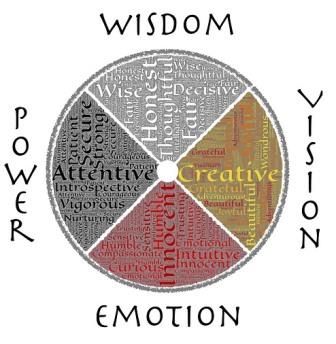A Korn Ferry Hay Group study reveals that women outperform men on emotional intelligence competencies.
Women score higher than men on 11 out of 12 emotional intelligence competencies. The only exception is emotional self-control, says a Korn Ferry Hay Group study.
The study reveals that women more effectively employ the emotional and social competencies correlated with effective leadership and management than men.
This is despite the fact that women have a tendency to self-evaluate themselves as less competent, while men tend to overrate themselves. The study covered data from 55,000 professionals across 90 countries and all levels of management, collected between 2011 and 2015. The analysis used the Emotional and Social Competency Inventory (ESCI), developed and co-owned by Richard E. Boyatzis, distinguished university professor, Case Western Reserve University and Daniel Goleman, co-director of the Consortium for Research on Emotional Intelligence in Organisations at Rutgers University, and the Hay Group.
According to Boyatzis, “If more men acted like women in employing their emotional and social competencies, they would be substantially and distinctly more effective in their work.”
The ESCI tool measures 12 emotional and social intelligence competencies proven to impact business performance: achievement orientation, adaptability, coaching and mentoring, conflict management, empathy, emotional self-awareness, inspirational leadership, influence, organisational awareness, positive outlook, teamwork and emotional self-control.
In fact, when assessing the competency levels of both men and women across the 12 key areas of emotional and social intelligence, it was found that the greatest difference between men and women can be seen in emotional self-awareness. Women are 86 per cent more likely than men to be seen as using the competency consistently (18.4 per cent of women demonstrate the competency consistently compared to just 9.9 per cent of men).
Similarly, women are 45 per cent more likely than men to be seen as demonstrating empathy consistently.
The smallest margin of difference is seen in a positive outlook. When it comes to this emotional intelligence competency, women are only 9 per cent more likely to exhibit the competency consistently than men.
Women outperform men when it comes to other capabilities, such as coaching, mentoring, influence, inspirational leadership, conflict management, organisational awareness, adaptability, teamwork and achievement orientation.
Emotional self-control is the only area where the performance of men and women was equal.
“The data suggests a strong need for more women in the workforce to take on leadership roles,” says Goleman.
“When you factor in the correlation between high emotional intelligence and those leaders who deliver better business results, there is a strong case for gender equity. Organisations must find ways to identify women, who score highly on these competencies, and empower them.”
As organisations increasingly recognise the importance of providing resources to further nurture and develop female leaders, women who score highly in emotional and social intelligence competencies will rise to the top. Further, as these competencies underpin highly effective performance, men have a great opportunity to learn from women in the workplace, how to best leverage these emotional and social competencies, and become more effective leaders. Through greater emotional intelligence, both men and women are able to boost performance within their organisations, accomplishing their goals through both internal and external stakeholders.
In addition, according to Hay Group research, levels of emotional intelligence displayed by a leader are strongly related to how long their team members plan to stay with the organisation.
Leaders with strong emotional intelligence create conditions that inspire team members to stay and contribute to the organisation in the long term. Conversely, leaders with low emotional intelligence have greater potential to drive team members away from the organisation.
Debabrat Mishra, director at Korn Ferry Hay Group, says, “Leaders who focus on emotional intelligence are the most effective. They manage to drive a team using an empathetic approach, a quality more prevalent in women leaders. In our experience, women are underestimated for what they can do in leadership roles. Our research shows that women are more equipped with emotional intelligence. Therefore, they are more likely to lead effectively. For businesses to succeed in their leadership pipeline creation, the untapped potential of their women leaders could be a quick win.”



